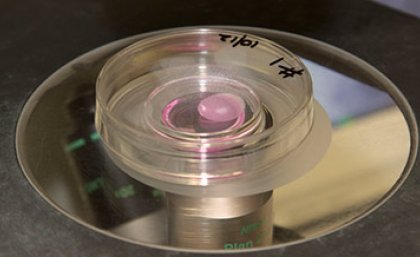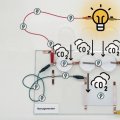
University of Queensland researchers have made a major leap forward in treating renal disease, today announcing they have grown a kidney using stem cells.
The breakthrough paves the way for improved treatments for patients with kidney disease and bodes well for the future of the wider field of bioengineering organs.
Professor Melissa Little from UQ’s Institute for Molecular Bioscience (IMB), who led the study, said new treatments for kidney disease were urgently needed.
“One in three Australians is at risk of developing chronic kidney disease and the only therapies currently available are kidney transplant and dialysis,” Professor Little said.
“Only one in four patients will receive a donated organ, and dialysis is an ongoing and restrictive treatment regime.
“We need to improve outcomes for patients with this debilitating condition, which costs Australia $1.8 billion a year.”
The team designed a protocol that prompts stem cells to form all the required cell types to ‘self-organise’ into a mini-kidney in a dish.
“During self-organisation, different types of cells arrange themselves with respect to each other to create the complex structures that exist within an organ, in this case, the kidney,” Professor Little said.
“The fact that such stem cell populations can undergo self-organisation in the laboratory bodes well for the future of tissue bioengineering to replace damaged and diseased organs and tissues.”
“It may also act as a powerful tool to identify drug candidates that may be harmful to the kidney before these reach clinical trial.”
Professor Little cautioned that there was a long way to go before this might be ready for human trials, but that it was an exciting step forward.
Queensland Minister for Science and Innovation Ian Walker congratulated Professor Little and said biomedical research was crucial in ensuring a healthier future for Queenslanders.
“The work by the IMB research team is an important milestone in developing improved treatments for chronic kidney disease and will ensure those with the condition can continue to live fulfilling and productive lives,” Mr Walker said.
The research team included Dr Minoru Takasato, Pei Er, Melissa Becroft, Dr Jessica Vanslambrouck from IMB and Professor Andrew Elefanty and Professor Ed Stanley from the Murdoch Children’s Research Institute and Monash University.
The research is published in the scientific journal Nature Cell Biology and supported by the Queensland Government, the Australian Research Council as part of the Stem Cells Australia Strategic Research Initiative, and the National Health and Medical Research Council of Australia.
To make a tax-deductible donation to IMB kidney disease research, visit www.imb.uq.edu.au/donate or call +61 (07) 3346 2134.
To discuss commercial opportunities associated with this research, contact Dr Mark Ashton on m.ashton@uniquest.com.au or +61 (07) 3346 2186.
The Institute for Molecular Bioscience (IMB) is a research institute of The University of Queensland that aims to improve quality of life by advancing medical genomics, drug discovery and biotechnology.
Media contact: IMB Communications Manager Bronwyn Adams,0418 575 247, 07 3346 2134, b.adams@imb.uq.edu.au.


